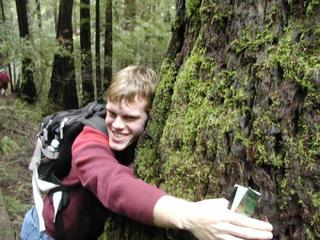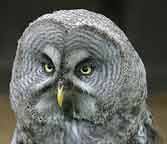Environmentalism Part 2: My Journey with Ishmael

This post has been a long time coming, and for some reason I still feel like it's half-baked. For space and time purposes I cut out large chunks that I doubt will see the light of day, unless I can use them next week or in the comments section. Ah, well. It still needs to be said.
When I was in first-year sociology at the college I was attending, we had to read a book. Well, we had to read several books. Most of them large and expensive. The largest and most expensive of these we usually bought with someone, to be shared in the spirit of friendship and eventually fought over come exam time. The smaller ones we snapped up right away, as they were typically less expensive (except in the case of Swinburne's Providence and the Problem of Evil, which despite it's 1/2 inch thickness weighed in at an impressive 45 bucks). If you did not locate these lighter readings within the first day of getting your syllabus you were unlikely to find them at all for several weeks.
So it was with no small amount of pride that I snatched the bookstore's final copy of Daniel Quinn's Ishmael. I knew that I'd made a good choice in picking this one up for myself; for starters it was cheap, and in addition to it's student-friendly price it was - get this - a novel. A novel about environmentalism and humanity. You can imagine what I was thinking at the time. We were supposed to read a tree-hugger novel for a college class? Well, sign me up.
On the cover of said novel there was a quote, one of those little soundbites that books have on their covers from famous people who had read it before it went to paperback. I don't remember who wrote the comment, it's not important now. But the comment itself seemed arrogant to me, as it read, "I will forever divide the books I have read into two categories; the ones I read before Ishmael and those read after."
When I read that, I snorted. Really. And then I laughed at it. What kind of narcissistic author puts a quote like that on his book cover? I was in serious doubt of my ability to take this book seriously from now on. In typical college freshman style I decided to go through this book and tear it to shreds. I was confident in my ability to utterly destroy any arguments and insights this self-centered author claimed to have. It was going to be great.
I read it twice in three days.
If you've never read it, I'm not sure how to describe it to you. You simply have to read it for yourself. Through a narrative form of fiction - similar to McLaren's NKOC trilogy - several simple, naturally observable truths about the world were presented and discussed. That's it. And through the course of these discussions I was changed.
It was the mental and emotional equivalent of living in Banff your whole life and suddenly and for the first time noticing the mountains. Or perhaps more accurately being a fish and observing that there was, in fact, this great vast wetness called "water" all around you, and you've never quite realized it was there. Through the conversation in the book I became aware of the influence of aspects of our culture that I had never been aware of before. I realized that the buzzing in my ears was really a cacophony of voices, all saying messages that I've been absorbing all my life without actually hearing them. In Christian terms, it was like becoming conscious of the Devil's voice in your ear, the voice of the cultural and worldly powers that had been seducing you all your life.
I'm trying to say that this book changed me. Not that it taught me, not that it gave me new ideas to think on. I'm saying that when I put the book down I was a fundamentally different person than I was before. The quote on the front no longer seemed arrogant but inadequate. Do you understand? I was no longer who I was before I read Ishmael, rather I was someone new, and going back to the way I was would simply not be possible. I can't think of any other way to say it.
I won't tell you what all occurred in the weeks that followed. I literally didn't know what to do with myself. I got into useless arguments with people who hadn't read the book, or with people who had and didn't get it. I flew into a rage at the simplest things - at someone suggesting we go to McDonald's, for example, or for talking about foreign aid policy. It was a rough month. But enough, leave it alone. It's not important now.
When I'd gotten myself as low as I could have thought, I sat up, took a shower, and decided to get on with it. I wrote my book review, got an A, then tracked down my prof and dragged him into a long, drawn-out conversation about environmentalism, the Bible, Ishmael, humanity and Christianity's place in all of the above. At around the same time I also read Genesis 3:17 (as I mentioned in part 1) and more things fell into place for me. I'm very thankful for my professor, as without him I'm not sure what I would have done.
So. It doesn't do me much good to tell you what happened to me and not tell you why, I suppose. I want to bring up three items I learned from Ishmael and how they affected me. These three points are by no means exhaustive of what the author had to say. I'm looking at them from a Christian perspective, so that "informs" them somewhat. I'm just trying to explain what affected me so deeply.
1. The world was not made for man. It's that simple. Ask anyone these days about the earth and you'll hear it, "OUR oceans," "OUR environment," "OUR oil reserves," "OUR crops." Among almost every single culture alive today there is a pervasive understanding that the world in its entirety belongs to us, so we can do what we damn well please with it. Things like pollution and environmental destruction, well, that's just because the world isn't far enough under our control. If it was, we could control the weather, repair the atmosphere, and continue squeezing every last drop of resources the world has to offer.
Or, in the "Christian" perspective, pollution et al. is a result of sinfulness. Mankind is essentially screwed up, therefore it's to be expected that the world is falling to pieces. And it doesn't really matter, anyways, because it's going to be consumed by fire and a brand new planet will be given to the faithful, one that we can't screw up. Besides, the world really does belong to us - or at least was made specifically for us to rule. We are the culmination of creation.
But in Ishmael, Quinn suggests that the very reason the planet is as bad off as it is is because we are treating it like a servant to do our bidding, or - at our worst - an enemy to be subdued. Hence our language about "natural disasters," which any scientist can tell you plain and simple have been going on for millions of years and are merely the product of a young planet. We have seen the destruction we have wrought because of treating the planet like it belongs to us. It's not ours.
2. Therefore, if the world was not made for us, we were made for the world. Humankind is a part of the order of creation. As was pointed out in the comments section last time, we are highly regarded by God - "higher than the angels" or something to that effect - and I think that's true. But I don't think that means we exist outside of the natural order.
Look at the symbiotic model in nature - the delicate balance between predator, prey, and population. It is a common enough belief that a population never expands beyond its food supply's ability to sustain them. If they did, they would starve and die off. Yet look at humanity - the only organism on the planet that exists in such a state of overpopulation. And we will go on overpopulating because we place no limits on ourselves. We are producing food for a population many times our current size. And millions are starving. Yet our first solution is "produce more food" rather than population control. We are living outside of the order that every other creature on the planet has lived under since the beginning, and we're suffering for it.
3. If man was made for the world, than in order to survive man must live according to its rules. This does not take away the "stewardship" aspect to our God-given nature - and I'll get into that more next week - but it does mean that we cannot expand indefinitely or abuse our environment. I don't think too many people will disagree with that. But what if that means giving something up?
In the movie "Instinct" with Anthony Hopkins and Cuba Gooding Jr, they deal with many of the ideas raised in Ishmael. At one point, Cuba's character asks something to the effect of, "Well, what do we have to do to save ourselves? Go back and live in the jungle? Give up the cities and everything else?" And Hopkins responds, "In order to save itself mankind must give up only one thing: dominion."
I think that it may be especially difficult for us Christians to deal with this last part. We have grown up with "Fill the earth and subdue it" in our ears, and I don't think we're likely to give that up easily. Again, I'll deal with Genesis next week. I think it's safe to say that if we lived according to the same laws as the lion and the bird and the wombat, the earth would look alot different. Would this be positive? Is it still possible?
I know this article falls drastically short of what Ishmael accomplished. Please take any shortcomings as mine and not Daniel Quinn's. I hope that in the comments section we can flesh this out a bit more. If you have anything to add, please share it.
Continue reading...


